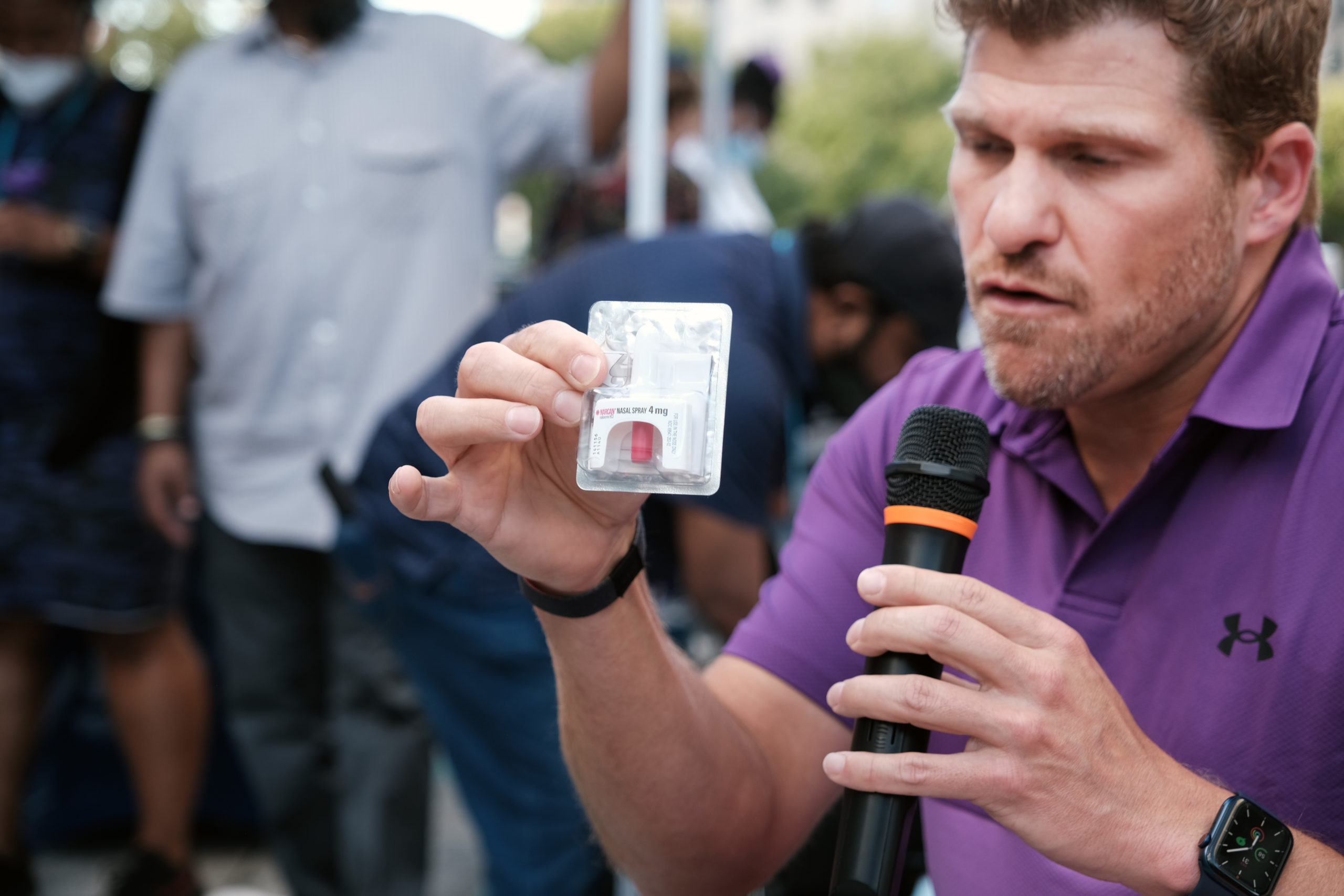Parents of teenagers and young adults who died after consuming fentanyl called for a whole-of-government response addressing the crisis during a Thursday round-table organized by the Republican Study Committee (RSC).
Ten advocates spoke to elected officials about their family members who died after consuming the synthetic opioid. They claimed that fentanyl deaths should not be considered overdoses, since the drug is fatal to individuals after they consume more than two milligrams. More than 71,000 people suffered fentanyl-related deaths in 2021, out of 105,000 drug overdose deaths overall.
“This is not an overdose. Overdose implies there’s a safe dose to take. There is no safe dose of fentanyl,” April Babcock, founder of Lost Voices of Fentanyl, told lawmakers. “I want a COVID-like response to fentanyl. Everyone knew after three months of COVID, social distance, wear a mask, wash your hands. Where is that for fentanyl?”
“This should be coming from the White House down,” she added.

NEW YORK, NEW YORK – AUGUST 31: Shaun Willis, with the Brooklyn Community Recovery Center, demonstrates how to use Narcan to revive a person in the case of a drug overdose on August 31, 2022 in New York City. Nearly one million people have died of drug overdose deaths in America in the past two decades, with an increasing majority of those deaths due to synthetic opioids like fentanyl. (Photo by Spencer Platt/Getty Images)
Federal agents have seized 10,558 pounds of fentanyl in Fiscal Year 2022, and are on pace to break 2021’s record of 11,203 pounds. Fentanyl is primarily produced in labs in Mexico and China, and brought over the southern border by drug cartels. (RELATED: Senators Press Top Biden Admin Official On ‘Embarrassing’ Response To Fentanyl, Opioid Epidemic)
“It’s a moneymaker for them. For us, it’s murder,” parent Theresa Juillerat said of drug traffickers. “This is a red, white, and blue crisis that needs immediate attention.”
Lori Ashenfelder told Republican lawmakers that her son DJ became addicted to opioids after he was prescribed painkillers for an injury.
“Fentanyl is killing our youth. Something has to be done to shut the border down,” she said.
Most activists stressed the importance of public awareness of the crisis. The DEA recognized National Fentanyl Prevention and Awareness Day on Aug. 21, with agency Administrator Anne Milgram saying in a statement that “no community is safe from” the drug.
“When people learn this is the leading cause of death for people 18-45, they’re floored,” Nate Moellering of Bare Knuckle Recovery said. “This is an everybody problem and it needs to be an everybody solution.”
“We’re going to try to elevate the message,” Republican Texas Rep. Chip Roy responded. “Some of us are trying.” (RELATED: Authorities Bust Drug Dealers With Enough Fentanyl To Kill Nearly 5 Million People, DA Says)
“It’s tragic, it’s angry, and it’s frustrating. We can’t fix a problem that we don’t think exist.” Republican Michigan Rep. Lisa McClain added. “We have to get into the court system as well. To incarcerate these individuals is not the answer. We started the drug court, which is maybe not the best name. But it’s let’s get these individuals into treatment.”
RSC members, led by Chairman Jim Banks of Indiana, introduced an amendment to the Controlled Substances Act on Thursday that would increase penalties for drug trafficking when the drugs are “combined with a candy or beverage product” or colored to appear like candy. Doing so would become a felony punishable by up to ten years in prison for a first offense, and up to 20 years for a second offense.
Activists Brandy Black and Kathy Buckheit told the Daily Caller that local regulations, more so than federal ones, discourage drug users from seeking health after an overdose. They noted the absence of Good Samaritan laws, which protect individuals from prosecution when reporting drug overdose, in several jurisdictions. Although 47 states and Washington, D.C., have Good Samaritan laws, most states limit covered defenses to misdemeanors only.
“If there are drugs in the house, if they think you have anything to do with it, you’ll sit in jail,” Black explained. “So many people are left to die. Some are moved to the side of the street.”


